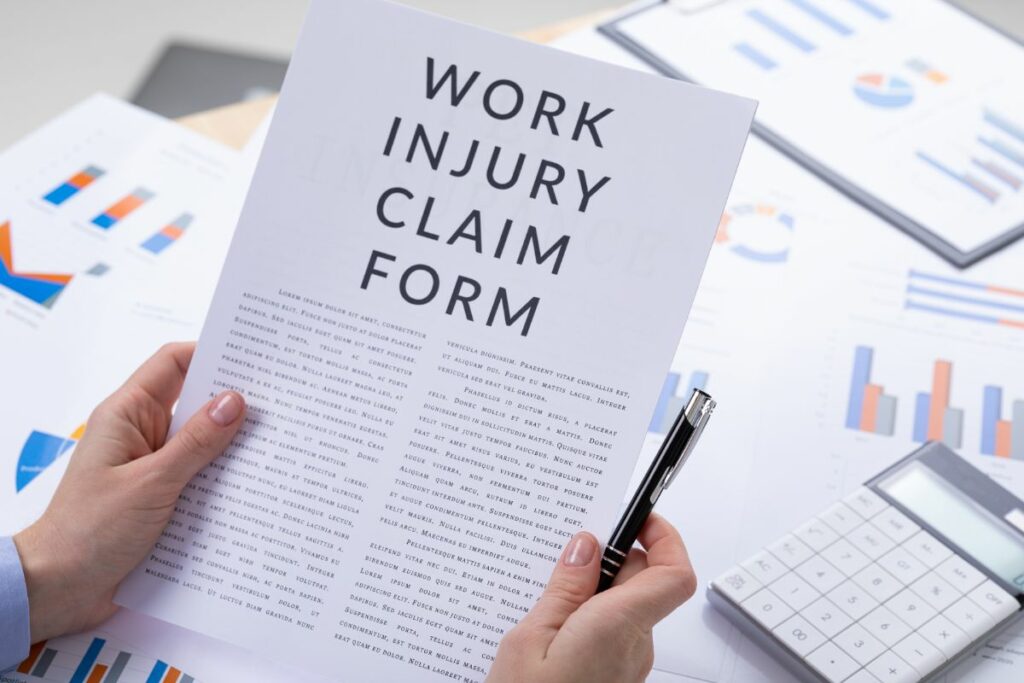Six Reasons Why Your Virginia Workers' Compensation Claim May Be Denied

The Virginia workers’ compensation system provides legal protection to workers injured on the job, or those with job-related illnesses. The system allows such workers to receive medical benefits, and reimbursement for a percentage of their lost wages, due to their temporary or permanent disabilities.
Obtaining these benefits is not always an easy process. In many situations, your workers’ compensation claim may be denied. Listed below are seven common reasons for the denial of workers’ compensation claims:
Failure to Timely Notify Your Employer of Your Injury
If a job-related injury or illness occurs, you must notify your employer immediately. If you fail to provide notice within 30 days, you could lose your right to receive workers’ compensation benefits. The sooner you notify your employer of an injury, or being diagnosed with a work related illness, the better off you will be.
In the event of a sudden accident on a job site, you should let your immediate supervisor know as quickly as possible so that you can receive the proper emergency care. Follow up with your employer as soon as you are able to do so. In the event you suffer a job-related illness, inform your employer as soon as the illness or condition is discovered/diagnosed.
Make sure to keep a copy of the written notice that you give to your employer. You should keep a copy for your own records. If your claim is denied due to an alleged failure to give proper and timely notice, you will have the proper documentation to be able to refute it.
Failure to File Your Workers’ Compensation Claim Within the Statute of Limitation Time Limits
Under Va. Code Ann. § 65.2-601, you have up to two years from the date of an injury or illness to file your claim with the Virginia Workers’ Compensation Commission. If you fail to act within this two-year period, you will be barred from filing a claim.
Once you have notified your employer of your injury or illness, the employer must file a report with the Commission within 10 days.
Having a Non-Work Related Injury or Illness
The Virginia workers’ compensation system covers only injuries that occur within the course and scope of your employment. For example, if part of your job involves running errands in an automobile, you would be covered in the event of an accident while running those errands. On the other hand, if your accident occurred while you were on a lunch break, and running a personal errand, you would not be covered.
In addition to non-work related injuries, you will not be eligible for workers’ compensation coverage if you were under the influence of alcohol or drugs when your injury occurred, or if you were engaged in reckless behavior on the job. Injured workers are often given toxicology screenings after a workplace accident to test for the presence of alcohol or drugs in their system.

Not Being Covered as an Employee
Virginia law requires any business with three or more employees to carry workers’ compensation insurance coverage. These benefits must be provided to both part-time and full-time employees, as well as seasonal and temporary workers.
Additionally, contractors must provide workers’ compensation coverage for subcontractors and their employees. Even if a subcontractor carries workers’ compensation insurance, the contractor using the subcontractor’s services must also provide coverage if there are more than two people working. Independent contractors are not covered under the Virginia Workers’ Compensation Act.


Having a Pre-Existing Condition Not Aggravated by Your Work Injury
When you file a claim for workers’ compensation benefits, the doctor who treated your injury or illness will need to submit an Attending Physician Form.
If you have a pre-existing condition that was aggravated as the result of your job-related injury, it should be covered. For example, if you became ill from breathing toxic fumes, and you had asthma as a pre-existing condition, it would likely be covered.
If you breathed in fumes and had degenerative disc disease as a pre-existing condition, treatment for your back pain would likely not be covered. In other words, your eligibility for benefits would need to be connected to or aggravated by the fumes.

Failure to Cooperate with the Insurance Company
When you are injured on the job, your employer will report it to the insurance company. You may be required to fill out additional forms, provide written or verbal statements, or consent to a release of certain medical records.
You should consult with an experienced workers’ compensation attorney before making any statements to the insurance company. However, it is important to cooperate with the insurance company. Failure to do so could result in your benefits being denied.
Additionally, if your doctor recommends a suggested course of treatment, you must follow the suggested course of treatment. Failure comply with medical treatment may lead to the denial of your workers’ compensation claim.
Our Virginia Workers’ Compensation Attorneys Can Help You
If you or someone you care about has suffered an on-the-job injury or illness, and has been denied workers’ compensation benefits, contact us immediately. Our experienced workers’ compensation attorneys will provide aggressive legal representation, and will assist you in pursuing the benefits you deserve. We have extensive experience representing injured workers throughout the Commonwealth of Virginia. Contact us today for a free consultation.

Our Process
Step 1
Initial Review and Development of Litigation Plan
The client will meet with the attorney to review the current status of the case, develop a plan of action, determine a budget, and formulate a timetable for resolution. The attorney will discuss the client’s specific goals, review any relevant caselaw or statutes related to the litigation and answer the clients questions about the process.
Step 2
Pleadings, Discovery, and Motions
Being party to a lawsuit requires ongoing effort to organize your case through written documents that are submitted to the court and opposing parties. It also may require court appearances to argue pretrial motions. During this stage, we will prepare any pleadings to be submitted to the court, draft discovery requests, responses and objections, issue subpoenas, conduction depositions, and prepare and argue any pretrial motions. This stage typically occupies 70-80% of the total timeline for your case.
Step 3
Trial Preparation and Settlement Negotiations
This stage includes review of all relevant evidence, preparation of any potential witnesses and the formulation of trial strategy. Our experienced staff will assist in the assembly of trial notebooks that include all documents you intend to present at trial. During this stage, settlement negotiations may take place in an effort to resolve your case without a trial if it is possible.
Step 4
Trial
If your case cannot be resolved through negotiation, a trial will be required. Based upon the plan we develop with you, we will present the evidence and witnesses that we have prepared to present your case in the light most favorable to you. Trials can sometimes have unpredictable outcomes. However, when you hire the Reed Law Firm, you can be confident that the evidence, arguments, and testimony you want to have heard will be presented in a coherent, organized, and compelling way to provide you with the best possible opportunity to win your case.
Workers' Compensation Recoveries
We offer our legal services to clients working in all industries. This particular client had been working in a warehouse when a forklift ran over his foot, which caused a partial amputation and degloving injury to his foot. Our team protected his rights and helped him receive that compensation that was rightfully due.
Our client was working as a secretary, when she tripped over a box and struck her head forcefully on the corner of a wall. The client sustained severe head and brain injuries, including a concussion and traumatic brain injury. Obtained $865,044.80 in workers’ compensation benefits on behalf of client.
Our client was operating a blown insulation machine at work that jammed. The client attempted to clear the jam, when the machine suddenly restarted causing the amputation of several fingers, and severe hand injuries. Obtained $734,065.02 in workers’ compensation benefits and personal injury proceeds on behalf of client.